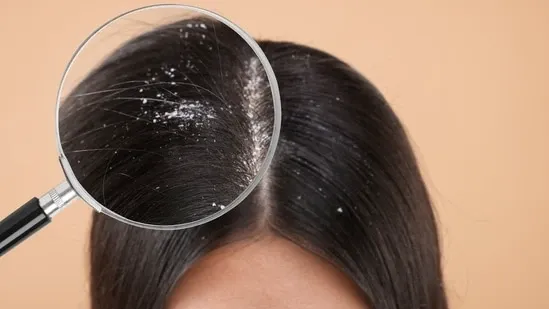In an interview with HT Lifestyle, Dr. Priyanka Kuri, consultant, dermatology, Aster Whitefield Hospital, Bengaluru said, "Irritation and flakes in scalp and hair are often dismissed as common dandruff, however, a more severe condition could be afoot. Scalp psoriasis, which is a chronic immune condition, looks very similar as dandruff and in the early stages, it may not be obvious."
What triggers dandruff and scalp psoriasis?
"Dandruff is usually linked to some kind of fungal activity, i.e. malassezia yeast, or excessive oil from our sebaceous glands, while scalp psoriasis is triggered by the immune system telling skin cells to reproduce abnormally fast resulting in thick scab like patches," explained Dr. Priyanka Kuri.
 Early warning signs to distinguish between dandruff and psoriasis:
Early warning signs to distinguish between dandruff and psoriasis:
"Many people tend to confuse psoriasis with dandruff and delay the treatment. Scalp psoriasis may spread to other areas unlike dandruff and affect either the forehead, neck or just behind your ears," the dermatologist added. Here are a few ways to distinguish the conditions:
1.
Flake type and texture: Dandruff flakes tend to be light and oily and white in color; psoriasis flakes are very thick and dry and have a silvery appearance to them.
2.
Redness or inflammation: Scalp psoriasis will often have a patch of red or inflamed area that extends beyond the hairline; dandruff does not have this characteristic.
3.
Ongoing itching or discomfort: There is certainly no shortage of itching with both scalp dandruff and scalp psoriasis; however, in most instances of discomfort or pain, the scalp psoriasis variant will be far more intense.
4.
Scalp dryness and cracks: with scalp psoriasis, the scalp can feel incredibly dry and develop cracks that may bleed.
Emphasising on the need of visiting a dermatologist as soon you can, Dr Priyanka Kuri said, "If you have psoriasis, dandruff shampoos are not going to help you, and trying to treat this on your own is important to avoid a worse flare. You should seek treatment as soon as you can."

 Early warning signs to distinguish between dandruff and psoriasis:
"Many people tend to confuse psoriasis with dandruff and delay the treatment. Scalp psoriasis may spread to other areas unlike dandruff and affect either the forehead, neck or just behind your ears," the dermatologist added. Here are a few ways to distinguish the conditions:
1. Flake type and texture: Dandruff flakes tend to be light and oily and white in color; psoriasis flakes are very thick and dry and have a silvery appearance to them.
2. Redness or inflammation: Scalp psoriasis will often have a patch of red or inflamed area that extends beyond the hairline; dandruff does not have this characteristic.
3. Ongoing itching or discomfort: There is certainly no shortage of itching with both scalp dandruff and scalp psoriasis; however, in most instances of discomfort or pain, the scalp psoriasis variant will be far more intense.
4. Scalp dryness and cracks: with scalp psoriasis, the scalp can feel incredibly dry and develop cracks that may bleed.
Emphasising on the need of visiting a dermatologist as soon you can, Dr Priyanka Kuri said, "If you have psoriasis, dandruff shampoos are not going to help you, and trying to treat this on your own is important to avoid a worse flare. You should seek treatment as soon as you can."
Early warning signs to distinguish between dandruff and psoriasis:
"Many people tend to confuse psoriasis with dandruff and delay the treatment. Scalp psoriasis may spread to other areas unlike dandruff and affect either the forehead, neck or just behind your ears," the dermatologist added. Here are a few ways to distinguish the conditions:
1. Flake type and texture: Dandruff flakes tend to be light and oily and white in color; psoriasis flakes are very thick and dry and have a silvery appearance to them.
2. Redness or inflammation: Scalp psoriasis will often have a patch of red or inflamed area that extends beyond the hairline; dandruff does not have this characteristic.
3. Ongoing itching or discomfort: There is certainly no shortage of itching with both scalp dandruff and scalp psoriasis; however, in most instances of discomfort or pain, the scalp psoriasis variant will be far more intense.
4. Scalp dryness and cracks: with scalp psoriasis, the scalp can feel incredibly dry and develop cracks that may bleed.
Emphasising on the need of visiting a dermatologist as soon you can, Dr Priyanka Kuri said, "If you have psoriasis, dandruff shampoos are not going to help you, and trying to treat this on your own is important to avoid a worse flare. You should seek treatment as soon as you can."